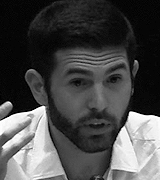
Duarte Rolo
Maître de conférences (professor associado) de Psicologia, Institut de Psychologie Henri Piéron, Université Paris Descartes (França), desde setembro de 2015. Psicólogo clínico. Doutoramento em Psicologia, Conservatoire National des Arts et Métiers (CNAM), Paris, França (2009-2013). Pós-graduação em psicopatologia do trabalho, CNAM. – Université Paris Descartes (Faculdade de Medicina) (2010-2011). Mestrado de Psicologia do Trabalho, CNAM (2008-2009). Mestrado de Psicologia Clínica e Psicopatologia, Université Paris Descartes (2007-2008).
ARTIGO
Burnout: A syndrome of our time, or a mere return of pathological fatigue?
Public space seems to have seized burnout as a new social cause. Originally identified in health care workers, this syndrome is now the scourge of big business executives, and even, outside the professional sphere, young parents or students. Nevertheless, the success of this nosological entity remains a subject of questions for the clinician. Especially since the media coverage of the phenomenon lingers on the issues, it raises on a psychopathologycal level. In fact, the visibility of burnout seems to gain ground at the expense of a debate on the semeiology and etiology of the disorder, supposedly the source of its conceptual and clinical legitimacy. Making a detour through nosographic categories whose pathological fatigue was once the core, the author shall first try to examine the specificity of burnout as a psychopathological entity. The author will then try to understand if it truly deserves to be treated as a symptom of modernity, a status that many commentators obviously want to impart on this trouble.
ARTIGO
ESPLENDOR E MISÉRIA DE UMA CATEGORIA: A CENTRALIDADE DO TRABALHO NAS CIÊNCIAS SOCIAIS
A tese do fim do trabalho constitui uma das tendências intelectuais de relevo do final do século XX. Neste artigo tentarei expôr brevemente os argumentos de autores tais como Hannah Arendt ou Jürgen Habermas, críticos proeminentes da tese da centralidade do trabalho. Em seguida, com a ajuda de trabalhos efetuados no campo da sociologia e da psicologia do trabalho, procurarei contrapor alguns desses argumentos, mostrando de que forma o trabalho ocupa de fato um papel fundamental tanto do ponto de vista da consolidação da identidade individual como numa ótica societal.
ARTIGO
Psychoanalysis and critical theory: A new quarrel about revisionism?
The relation between psychoanalysis and Critical Theory has constantly evolved. Horkheimer, for instance, once considered psychoanalysis as one of the most important parts of the multidisciplinary materialism he wished to establish. In the following generations of the Frankfurt School, however, psychoanalysis has endured contrasting fortunes.1 Recently, Honneth has staunchly advocated a new alliance between psychoanalysis and Critical Theory. According to Honneth, however, this union should take into account the latest developments in psychoanalysis, on the one hand; and, on the other and, consider the author's own contribution to the field of Critical Theory, namely his model of the struggle for recognition. Honneth's plea in favor of psychoanalysis is thus doubled by a reconstruction of the Freudian presuppositions upon which his Frankfurt school elders reasoned.
ARTIGO
HISTOIRE ET ACTUALITÉ DU CONCEPT DE SOUFFRANCE ÉTHIQUE
Cet article constitue une tentative de remonter aux sources théoriques du concept de souffrance éthique. Dans ce dessein, il retrace les différents moments de la genèse du concept, notamment les débats qui ont précédé sa formalisation dans Souffrance en France. Il expose également les inflexions plus récentes de cette notion, comme les controverses avec d’autres courants disciplinaires (clinique de l’activité, éthiques du care) à ce sujet.
ARTIGO
O trabalho: entre prazer e sofrimento
Este artigo tem por objectivo introduzir os principais aportes teóricos da psicodinâmica do trabalho para a compreensão da relação entre o homem e o trabalho. Com esse intuito, expõe num primeiro tempo as diferentes fases do confronto entre a subjectividade e o real do trabalho, e procura evidenciar a natureza fundamentalmente afectiva da experiência do trabalho. Termina, por fim, evocando brevemente os requisitos individuais e colectivos da saúde mental no trabalho, propondo uma interpretação etiológica de certos distúrbios mentais relacionados com o trabalho.







